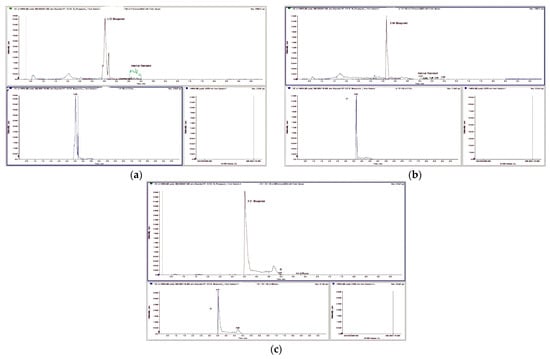Separation and Analysis of Drugs and Poisons in Forensic Science
A topical collection in Separations (ISSN 2297-8739). This collection belongs to the section "Forensics/Toxins".
Viewed by 19162Editor
Topical Collection Information
Dear Colleagues,
Forensic toxicology is an interdisciplinary field extracted from biology, analytical chemistry, medicine, and pharmacology with the aim to confirm or exclude the presence of xenobiotics (drugs, poisons, and other potentially toxic compounds) in biological and non-biological material as well as to determine their role for legal purposes. In forensic sciences, the interpretation of analytical results is essential to verify the cases in which the causes/concauses of toxic or psychoactive substance usage have contributed to the deaths of individuals or to discriminate between administrative or penal sanctions regarding living subjects. These analyses and interpretations must be conducted in a manner that will make them defensible in court.
Analytical methods used in forensic toxicology must be characterized by the highest quality to ensure the certainty and reliability of the analytical results of the analyses. Currently, for confirmatory analyses, advanced instrumental techniques such as the chromatographic separation of gas or liquid phase coupled with mass spectrometry single or tandem (GC/MS; LC-MS/MS; GC/HS) ensure sensitivity and selectivity for the detection and quantification of nanomolar concentrations of analytes in a variety of research materials. Any analytical procedures or modifications in these extraction techniques to further improve the sensitivity and recovery of analytes from biological matrices must be examined in terms of validation standards and referenced methods. Calibration curves must take into account the biological matrix which includes the examined substance and internal standard use.
I am pleased to invite contributors to this collection of Separations, which will focus on the most recent advancements in the field of the development and application of analytical methods for the identification and quantification of psychoactive substances in non-biological and biological matrixes, for medico-legal purposes. Topics of interest include the identification and analysis of psychoactive substances in seized materials; postmortem forensic toxicology; driving under the influence of drugs and alcohol; workplace drug tests; drug-facilitated sexual assault, drug-facilitated crime; synthetic and natural poisons; new psychoactive substances. Original research articles and reviews are particularly welcomed.
Dr. Anna Carfora
Collection Editor
Manuscript Submission Information
Manuscripts should be submitted online at www.mdpi.com by registering and logging in to this website. Once you are registered, click here to go to the submission form. Manuscripts can be submitted until the deadline. All submissions that pass pre-check are peer-reviewed. Accepted papers will be published continuously in the journal (as soon as accepted) and will be listed together on the collection website. Research articles, review articles as well as short communications are invited. For planned papers, a title and short abstract (about 250 words) can be sent to the Editorial Office for assessment.
Submitted manuscripts should not have been published previously, nor be under consideration for publication elsewhere (except conference proceedings papers). All manuscripts are thoroughly refereed through a single-blind peer-review process. A guide for authors and other relevant information for submission of manuscripts is available on the Instructions for Authors page. Separations is an international peer-reviewed open access monthly journal published by MDPI.
Please visit the Instructions for Authors page before submitting a manuscript. The Article Processing Charge (APC) for publication in this open access journal is 2600 CHF (Swiss Francs). Submitted papers should be well formatted and use good English. Authors may use MDPI's English editing service prior to publication or during author revisions.
Keywords
- forensic toxicology
- postmortem toxicology
- drug-impaired driving
- workplace drug testing
- drug-facilitated crime or sexual assault (DFC or DFSA)
- drugs of abuse/alcohol detection
- analytical method validation
- interpretation of analysis results
- gas/liquid chromatography
- tandem mass spectrometry
- new psychoactive substances
- synthetic and natural poisons






